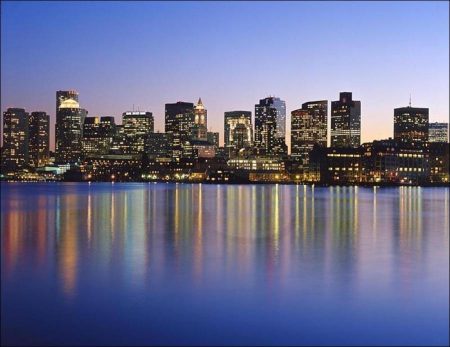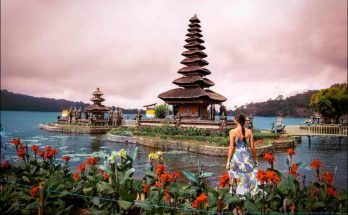To the seeker of a clue to the character of Massachusetts people, the rubric of the east wind may be useful. Time and again a salty breeze has blown through this most conservative of commonwealths. It wafted the first rebels to Cape Cod, dying down soon after. It burst forth again to blow steadily through most of the eighteenth century, when victories were won not only for political freedom but for education and religious toleration.
During the period of Federalism it abated, but by the 1840’s the faint whisper which had fanned the cheeks of mill girls in Lowell, mechanics in Boston, and scholars in Cambridge and Concord was roaring in a gale that shook the rafters of the nation. It blew fitfully throughout the later nineteenth century, dying to a flat calm at the beginning of the twentieth. From about 1909 to 1927 it let loose a window-rattling blast or two before subsiding again.
Many symbols have been devised to explain the Bay Stater. He has been pictured as a kind of dormant volcano, the red-hot lava from one eruption hardening into a crater which impedes the next; as a river, with two main currents of transcendental metaphysics and catchpenny opportunism running side by side; as an asocial discord consisting mainly of overtones and undertones; as a petrified backbone, ‘that unblossoming stalk.’ To these may be added the cartoonist’s Bluenose, the debunker’s Puritan, the Gentleman with a Green Bag, Aunt Harriet with her Boston Transcript, and the late unlamented Little Waldo of the spectacles and painfully corrugated brow.
That so many symbols have been created for the State hints at the complexity of its people. Any almanac or book of facts can inform the clue-seeker that the population is roughly three-fifths native, one-eighth from other states, and a quarter foreign-born or of mixed foreign-born and native parentage; that half the land area consists of farms, yet only a tiny proportion of the four and one-third million inhabitants are farmers; that about half the residents are church members, of whom three-fifths are Catholics; that an Indian boldly figures on the State seal, but only few residents today report themselves as descended from Massachusetts’ first families.
Stumbling on the fact that the State has more public libraries than any other save New York, and more volumes per capita than any other, the seeker cries Aha! — only to learn a few moments later that Ohio, with one-third fewer library books, has at least as many library readers. Told that no non-native resident ever feels at home for his first twenty-five years, the seeker is surprised to discover that more than a third of the State’s residents were born outside its borders. At long last he is likely to emerge from the almanac with the information that citizens of the State live a little longer than the dromedary, rather less than the ostrich, and for a much shorter span than the fresh-water mussel; or that from the State came three Presidents, seven Secretaries of the Navy, a host of cabinet officers, and the man who first went over Horseshoe Falls in a rubber ball.
Clearly a symbol is necessary. Let it be, then, the east wind, and let the east wind blow to these shores in the early 1600’s, not companies of large-minded and open-handed gentlemen-adventurers, but small, closeknit, compactly organized groups. ‘God sifted a whole nation that he might send choice grain over into this wilderness,’ wrote William Stoughton in 1668, and this ‘sober and judicial statement,’ as Calvin Coolidge called it, indicates how the first-comers viewed the rest of the world in terms of themselves.
The peculiar combination of individualism and conformity which still marks the State was given divine sanction by the theology brought by the first inhabitants. Calvinism, which had deposed heaven’s hierarchy of saints, increased the prestige of the individual; but the doctrine of Providence, which taught that God’s gifts must not be used for selfish ends, permitted the individual to act only as the group decreed. Individuals outside the group were feared and combated. Since conformity breeds non-conformists, rebels appeared and split off from the main group — they in turn to conform and to breed rebellion.
With the expulsion of Anne Hutchinson, Roger Williams, and their followers, the inhabitants of the Bay Colony proved, at least to themselves, their right to be winnowed grain. Succeeding Roger Williams at Salem in 1636, however, came an even more radical minister, Hugh Peter. Master Hugh, a member of the first Harvard Board of Overseers, while still in London had advocated State employment relief, slum clearance, and prison reform. In the New World he proposed the wholesale abolition of English law and the substitution therefor of a new concise legal code understandable by the common people.
Perhaps it was as well for the peace of mind of the colonists that he returned to England, where unfortunately he got himself beheaded for his plain speaking. But the east wind blew; the Church of England was granted toleration, and a wider freedom of worship slowly followed. Yet worshipers still sat in their pews strictly according to rank; democracy was highly limited; and a large section of the people, including indentured servants, women, and the propertyless, remained disenfranchised for more than a century.
The gale of pamphleteering, musketeering, committee organizing, speech-making, and political scribbling which blew throughout the eighteenth century ceased abruptly late in the 1790’s. A lone voice rose but was unheard, that of William Manning, Billerica farmer. ‘I see,’ wrote this Jeffersonian radical, painfully forming his letters, ‘almost the first blood that was shed in Concord fite and scores of men dead, dying and wounded in the Cause of Libberty… I believed then and still believ it is a good cause which we aught to defend to the very last.’
The editor of the Independent Chronicle of Boston, to whom Manning sent his appeal, was jailed on the Federalist charge of ‘seditious libel.’ Meanwhile Daniel Shays and his lieutenant Luke Day had armed their cohorts of impoverished farmers near Worcester, and had been dispersed by a militia subsidized by Boston merchants. A new cloud big with wind, the rising of which farmers such as Manning and Shays could not foresee, was bulking in the sky: the young ‘mechanick’ class of the industrial towns.
Against the background of the demands of the skilled mechanics and factory operatives for popular education, legislative reform, and political representation which characterized the 1840’s, rose transcendentalism, a kind of neo-puritanism which symbolized, on the plane of ideas, the conflict going on in the real world between the Colonial system of small self-sufficient industry and the new mode of factory production. On the social field transcendentalism had a single watchword: harmony. Not through hatred, collision, the war of class against class, transcendentalists insisted, could come social adjustment, but only through the reconciling of interests.
In this belief the Unitarians founded Brook Farm and the Universalists Hopedale. Josiah Warren was holding his ‘parlor conversations’ and opening his ‘time stores,’ in which goods were paid for in scrip representing labor-time. Brisbane, aided by Horace Greeley, was moving his paper The Phalanx to Brook Farm and renaming it The Harbinger. It was a time of optimism, of revolt against tradition and convention, of faith in the infinite perfectibility of the human race -and the particular perfectibility of the Yankee. It was the glorious adolescence of the most precocious of the states.
Views: 166



